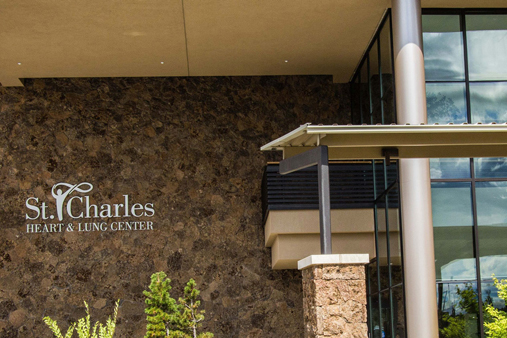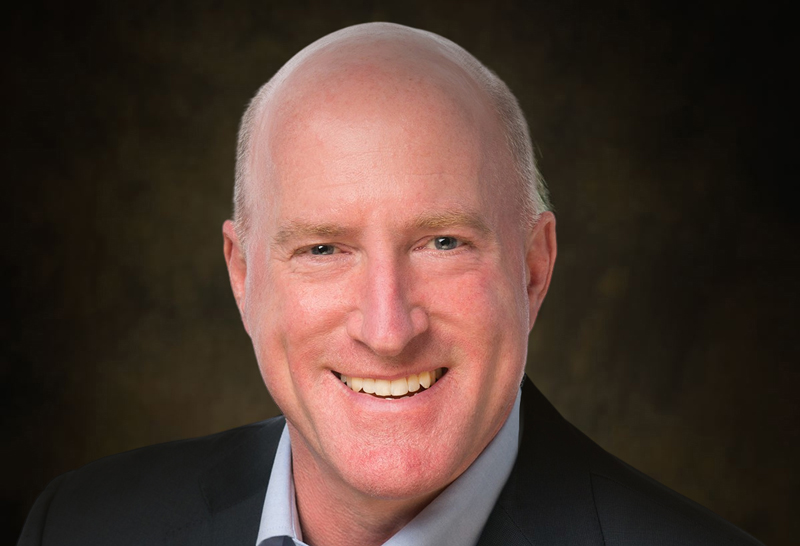Ask Hannah Boomer (Renzi) to name her favorite thing about being a certified nurse midwife, and she quickly offers an answer you might expect: “Delivering babies, of course!” she says, as a big smile lights up her face. “I always say, ‘I just had the most beautiful birth ever.’ And people are like, ‘You say that all the time!’ But it’s true, OK?”
It is a common misconception that midwives only deliver babies, but St. Charles Health System’s midwifery practice encompasses much more than the birthing process. For proof, just ask Boomer's colleague, Emily Ziegler, for her favorite thing about being a certified nurse midwife.
“For me, it’s being with our clients throughout whatever's going on in their lives,” Ziegler said. “I really like the clinic side of things and the time spent building a relationship with women and their families, and being there for them as they go through their journey.”
Boomer and Ziegler are two of St. Charles’ five certified nurse midwives, and in a way, their different answers mirror the diversity of experiences available through the health system’s midwifery practice, which is headquartered at the Center for Women’s Health in Redmond. Indeed, these women do deliver babies, and they also provide a full spectrum of services to meet women’s health care needs.
“We’re caring for women throughout their lifespan,” Boomer said, “from preventive medicine to annual exams, contraception and family planning, having a healthy pregnancy through to post-partum care. We take care of women from puberty through menopause.”
A healthy and full-term pregnancy was Hannah Block’s goal when she first visited the Center for Women’s Health. Block’s daughter, now 5 years old, was delivered at 33 weeks and spent a month in St. Charles Bend’s Neonatal Intensive Care Unit. When she became pregnant with her son in 2019, she knew she wanted “a whole different experience” leading up to birth, she said.
“I wanted something more natural, more low-key, not as invasive, but I also wanted to know that (obstetric physicians) were available as an option as well,” Block said. “After I met with the midwives the first time, I was pretty much sold. They were so open, and they let me know I could meet all the other midwives. I could meet with the doctors. Really, the ball was in my court.”
At first, Block thought midwives specialized in natural childbirth in the home. Soon, however, she learned that all five of St. Charles’ midwives – Jessica Nelson, Jessica Walsh and Jennifer Guthrie round out the group – have their Master’s degrees and work alongside physicians to deliver babies in the hospital. At the same time, she began to understand and appreciate the midwife experience, which extends far beyond the delivery room.
“Throughout my pregnancy, I never felt like they were rushing me. If I had any questions – or if my husband had any questions – we could be there for as long as we needed and it was fine,” Block said. “They always made sure I was comfortable. It was never, ‘We’re doing this. Here’s how it’s going to go.’ Everything was always, ‘How are you feeling? OK, we’ll roll with that.’”
Therein lies one of the big differences between midwifery and more traditional obstetrics, Boomer said. Whereas physicians are the experts in handling high-risk pregnancies, midwives are trained to handle normal, healthy pregnancies and deliveries.
“We’ll get women up out of the bed to try different positions and talk about what’s working best for them,” Boomer said. “We’re giving them all the information, risks and benefits and then coming together to decide what the plan will be.”
For most women, pregnancy is a low-risk condition up to and including delivery, and St. Charles’ certified nurse midwives can deliver those babies in the hospital. If complications arise, however, the midwives will consult with or transfer care to one of their physician partners until a baby is born or the risk subsides. If a physician takes over, the midwife can stay by the woman’s side to assist with procedures and offer a familiar face and emotional support through the process.
“We can help normalize and navigate the path to delivery for a woman, while at the same time respecting that this is still medical care and looking for things that are outside the range of normal and then co-managing that and getting a higher level of care when needed,” said Ziegler, a Bend High School graduate who came home to St. Charles last fall after a few years practicing in Washington.
Central Oregon’s midwives, nurses and physicians work together as a “close, collaborative” group that values open communication and cooperation when it comes to the health of area women and babies, Boomer said.
Block knows that all too well. Before delivering on Jan. 11, her son tried to show up early – at about the same time his premature sister had five years earlier. When that happened, Block was moved from low-risk to high-risk status, triggering the involvement of a physician until she passed the 36-week mark, which is considered full-term. At that point, her doctor let her switch back to a midwife for the rest of the process.
“The midwives ‘fired’ me,” she joked, “and then rehired me after about three weeks. I was so glad when I got rehired.”
The midwifery practice isn’t limited to Bend and Redmond. Midwives see patients in Prineville and Sisters, and they’re planning to expand to La Pine later this year. And after adding a couple of midwife positions last year, the five women are able to provide 24/7 coverage at St. Charles Bend.
It’s all part of St. Charles’ effort to provide the best care to the most women close to their home, Boomer said.
“I think it shows another layer of dedication and support for women in the region,” she said. “If a woman is fighting issues with transportation or language differences or a three-month wait list, it really impacts her ability to get the care she needs. We know there are a lot of barriers to care and our job is to decrease those barriers and meet women where they are.”





